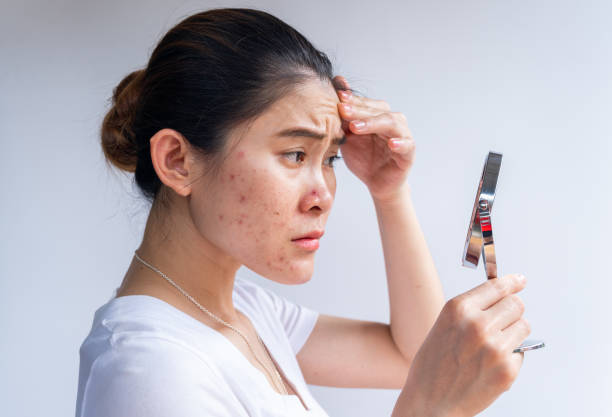What is Stubborn Acne? Hormonal Therapy May Help or Not
Acne is a common skin condition that affects millions of people worldwide. While most cases of acne can be managed with over-the-counter products or prescription medications, some forms of acne can be particularly stubborn and difficult to treat. One type of acne that often falls into this category is hormonal acne.
What is Hormonal Acne?
Hormonal acne is typically associated with hormonal fluctuations in the body. This type of acne often occurs during puberty, menstruation, pregnancy, and menopause, when hormone levels can fluctuate significantly. Hormonal acne is often characterized by deep, painful pimples, usually along the jawline, chin, and cheeks. Buy isotretinoin online that help to get the rod of acne.
Why is Hormonal Acne Stubborn?
Hormonal acne can be stubborn for several reasons. Firstly, the hormonal imbalances that cause hormonal acne can be challenging to regulate. Hormones like testosterone and estrogen can stimulate the production of oil in the skin, leading to clogged pores and acne breakouts.
Secondly, hormonal acne often involves inflammation, which can make it more resistant to traditional acne treatments. Inflammation can also lead to the formation of cysts, which are large, painful bumps beneath the skin’s surface.
Can Hormonal Therapy Help?
Hormonal therapy, such as birth control pills or anti-androgen medications, is often recommended for managing hormonal acne. These treatments work by regulating hormone levels in the body, which can help reduce the production of oil in the skin and prevent acne breakouts.
However, hormonal therapy may not be effective for everyone with hormonal acne. Some people may not respond well to hormonal therapy or may experience side effects that make it difficult to continue treatment.
Other Treatment Options for Stubborn Acne
For those who do not respond well to hormonal therapy, there are other treatment options available. These include:
- Topical Retinoids: These medications help to unclog pores and reduce inflammation in the skin, making them effective for treating stubborn acne.
- Oral Antibiotics: Antibiotics can help to reduce the bacteria that contribute to acne breakouts, making them useful for treating inflammatory acne.
- Isotretinoin (Accutane 40 mg): This medication is reserved for severe cases of acne that have not responded to other treatments. It works by reducing the size of the oil glands in the skin, which helps to prevent acne breakouts.
- Lifestyle Changes: Making changes to your diet and lifestyle, such as reducing stress, getting regular exercise, and avoiding certain foods that can trigger acne, can also help to improve stubborn acne.
Living with stubborn acne experience:
Living with stubborn acne can be incredibly challenging and can take a toll on both your physical appearance and your mental health. I have personally struggled with stubborn acne for years, and it has been a constant battle to find a treatment that works.
My acne first started in my teenage years, like many others, but unlike some of my peers whose acne cleared up with time, mine persisted into adulthood. I tried countless over-the-counter products, from cleansers to spot treatments, but nothing seemed to make a significant difference.
As my acne became more severe, I became increasingly self-conscious. I would avoid social situations and cover my face with layers of makeup to hide my blemishes. It was a constant source of frustration and embarrassment.
I finally decided to seek help from a dermatologist, who diagnosed me with hormonal acne. She recommended hormonal therapy, which I was hopeful would finally provide some relief. However, after several months of treatment, I saw minimal improvement, and the side effects were difficult to tolerate.
Feeling discouraged, I decided to explore other treatment options. I tried topical retinoids, oral antibiotics, and even considered isotretinoin (Accutane). Some treatments helped temporarily, but my acne always seemed to come back.
Through my journey with stubborn acne, I’ve learned that it’s not just a physical condition – it can also have a profound impact on your mental well-being. It’s easy to feel hopeless and defeated, but it’s important to remember that you’re not alone and that there are always options to explore.
Today, my acne is more manageable, thanks to a combination of treatments and lifestyle changes. While I still struggle with breakouts from time to time, I’ve learned to accept my skin and prioritize my overall health and well-being.
If you’re dealing with stubborn acne, know that there is hope. Don’t be afraid to seek help from a dermatologist and explore different treatment options until you find what works for you. And remember, your worth is not defined by the condition of your skin.
Conclusion
Hormonal acne can be a challenging condition to manage, but with the right treatment approach, it is possible to achieve clearer, healthier skin. If you are struggling with stubborn acne, speak to a dermatologist who can recommend the best treatment options for your individual needs.


